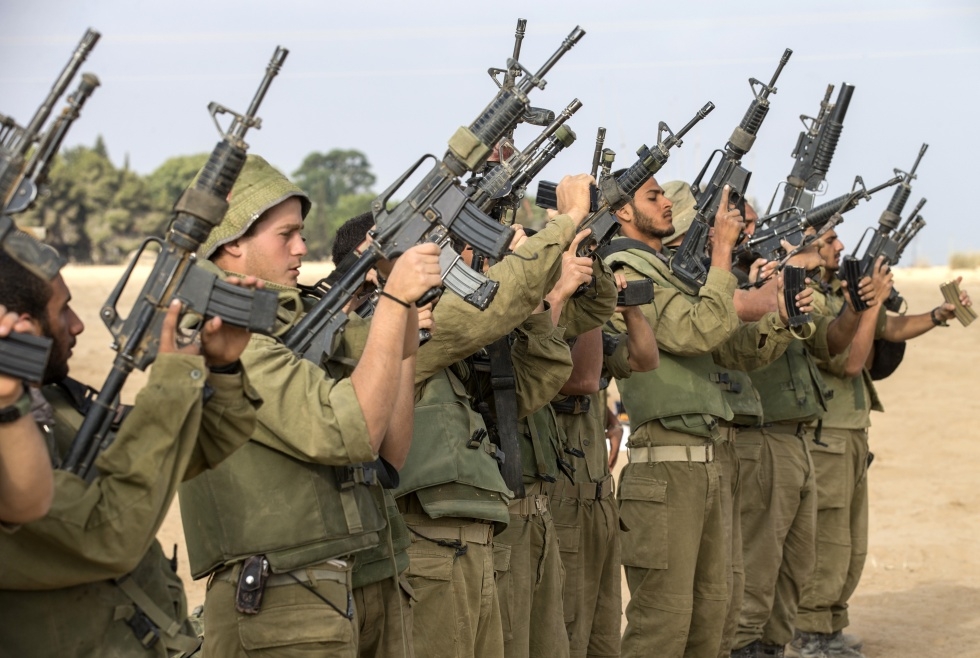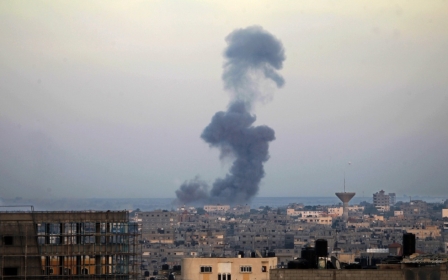Blood runs high in Israel over kidnapped soldier

This morning, like every Friday, I went to the market in Tel Aviv. The news about the beginning of the ceasefire sent the customers back to the market's alleys and the atmosphere looked a little more relaxed than after almost four weeks of fighting and rocket launching. But the salesperson at my usual cheese shop looked extremely worried. "Did you hear what happened?" he asked me, "They kidnapped a soldier. Better two hundred soldiers dead than one kidnapped." An hour later, the official announcement went out that Hamas captured an Israeli army officer in Gaza.
The words of the salesperson in the market represent a common sentiment in Israel. A soldier being kidnapped or taken prisoner (there is a notable semantic difference between the two terms) is conceived as the worst case scenario in the fight with Hamas or similar organizations, worse than a tank being hit or armoured carrier being set ablaze. The common Israeli feels that he has some kind of collective responsibility for the fate of these captured soldiers.
But there is more to it than just the fear for the well-being of these soldiers. The capturing of soldiers is seen either in Israel as well as by Hamas or Hezbollah or even Fatah at time of the 1982 Lebanon war as a moral victory. Above all, a captured soldier means that Israel will have to "pay" with the release of hundreds of Palestinian prisoners. This possibility is perceived almost as a strategic threat to Israel, as a weapon depriving it of its ability to deter the Palestinians from resorting to terror, as they, the possible terrorists, would know that even if caught, they will eventually be released.
With this being the Israeli line of thinking, it should not come as a surprise to anyone that the first military reaction was to heavily bomb and shell the area in Rafah where the kidnapping took place. The army applied the notorious Hanibal Directive, an order formulated by Israeli high officers already in 1986, allowing the army to endanger the life of an abducted soldier in order to foil his abduction. Nobody knows yet if the one ton bombs dropped on Rafah killed the captured soldier, Leutenant Hadar Goldin, but it certainly is a possibility. The blogger Richard Silverstein claimed that it least one Israeli soldier was already killed this way during the current operation.
Just three years ago, after more than five years in Hamas' captivity, the Israeli soldier Gilad Shalit was released in a deal leading to the release of more than 1000 Palestinian prisoners. Netanyahu agreed to this deal after he succumbed to a long public campaign led by the Shalit family, which recruited hundreds of thousands of Israelis to demand their son's release. The army sees its duty not to allow such a scenario to happen again. To the degree, that it is ready to kill its own soldier, only to relieve the political leadership from the dilemma of whether to exchange Palestinian prisoners with Israeli soldiers.
But the application of the Hanibal Directive in today's kidnapping seems not necessary. The public atmosphere in Israel has changed. At least for now, there are slim to zero chances that Israel will be ready to pay any price for the release of Goldin, if he is still alive. The support for the war against Hamas is still so high, that his capturing seems as another sacrifice to be made, just as the 63 soldiers killed so far. It just strengthens the popular conviction that Hamas is a vile terrorist organization, not respecting the ceasefire it asked for itself. Hamas claims that the incident took place before the ceasefire came into action are rejected off hand.
This does mean that Israel's pride is not hurt, that more and more military analysts admit that Hamas is far from broken, that its list of military achievements is getting longer: from launching rockets into Israel for four weeks in a row, to successful infiltrations through the tunnels into Israel, to deadly clashes with the Israeli army inside the Gaza Strip, and now, the epitome, the capturing of a soldier. The "victory icon" Israel was so afraid of.
Yet the question is what Israel will do with its anger. It surely poured some of it on the residents of Rafah, where more than 60 people were killed by the heavy bombings. Before the capturing of the soldier, the impression was that Netanyahu prefers a unilateral withdrawal from Gaza, without reaching a formal ceasefire agreement, leaving Israel the possibility to continue its airstrikes if Hamas will continue launching rockets. But after the kidnapping, a withdrawal which will leave the captured soldier behind might be seen as a defeat.
A ceasefire agreement might seem even more difficult politically. Even before the events of this morning, Netanyahu was reluctant to reach an agreement, as it would certainly relieve in some way the blockade on Gaza, thus giving Hamas political gains, and would introduce the Palestinian reconciliation government into Gaza, something which Netanyahu fought against so hardly from the moment it was born. Now, after Hamas has broken the "humanitarian" ceasefire terms, an agreement might be perceived as an Israeli surrender, especially if the soldier will remain in captivity.
Yet the military options are not brilliant either. The option of full occupation of the whole Gaza Strip is pushed now more strongly by Cabinet ministers and also by field commanders in the army, but it is not probable that Netanyahu will agree. The fact that the army suffered higher losses than expected while controlling very limited parts of the Gaza Strip certainly do not help Netanyahu to opt for its full occupation. A more probable idea would be to cut off Rafah from the rest of the Gaza Strip, a relatively simple move, but its benefits are not clear.
Leaving aside the question of the price to be paid for the release of Goldin, his capturing has deepened Israel's dilemmas in Gaza. The way in - meaning widening the military operation - seems more dangerous than expected, the way out seems more complicated than imagined, and to stay put seems not very wise. Does this mean that Israel will be dragged into a ceasefire against its will? It is too early to tell. The blood is too hot.
Stay informed with MEE's newsletters
Sign up to get the latest alerts, insights and analysis, starting with Turkey Unpacked
Middle East Eye delivers independent and unrivalled coverage and analysis of the Middle East, North Africa and beyond. To learn more about republishing this content and the associated fees, please fill out this form. More about MEE can be found here.



